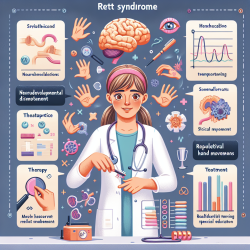Enhancing Online Therapy for Schools: Insights from Law Enforcement Referrals

The research article titled "Preferences and acceptability of law enforcement initiated referrals for people who inject drugs: a mixed methods analysis" provides valuable insights that can be adapted to enhance online therapy services for schools. This blog aims to highlight key findings from the study and suggest ways practitioners can implement these insights to improve their services.
Understanding Law Enforcement-Initiated Referrals
The study examines the alignment of service referral preferences and acceptability among people who inject drugs (PWID) and law enforcement officers (LEOs) in Tijuana, Mexico. The research reveals strong support for LEO service referrals among both groups, particularly for substance use treatment and harm reduction services.
Key Findings
- 78% of PWID and 88% of LEOs support assistance with drug- and alcohol-use disorders.
- Over half of both groups endorse harm reduction services such as syringe service programs, overdose prevention, and HIV testing.
- PWID showed higher support for referrals addressing basic needs like personal care, food assistance, and housing assistance compared to LEOs.
- 71% of PWID reported they would likely use a referral service, whereas 94% of LEOs believed PWID would utilize them.
Practical Applications for Online Therapy
Practitioners in online therapy services for schools can draw several lessons from these findings:
1. Integrate Substance Use Treatment
Given the high preference for substance use treatment, online therapy platforms should consider incorporating specialized programs for students struggling with substance use. This could include virtual counseling sessions, support groups, and educational resources on substance use prevention and treatment.
2. Emphasize Harm Reduction
Incorporating harm reduction strategies into online therapy can be beneficial. Providing resources on safe practices, offering virtual consultations with healthcare professionals, and facilitating access to harm reduction supplies can make a significant difference.
3. Address Basic Needs
The study highlights the importance of addressing basic needs. Online therapy services can collaborate with local organizations to provide students with access to food, housing, and personal care resources. Virtual workshops on life skills and job readiness can also be beneficial.
4. Build Trust and Accessibility
To ensure high acceptability and utilization of services, it is crucial to build trust with the students. Offering confidential and non-judgmental support, as well as making services easily accessible, can encourage students to seek help.
Encouraging Further Research
While this study provides valuable insights, further research is needed to explore the long-term impact of integrating these findings into online therapy services. Practitioners are encouraged to conduct their own research and share their findings to contribute to the growing body of knowledge in this field.To read the original research paper, please follow this link:
Preferences and acceptability of law enforcement initiated referrals for people who inject drugs: a mixed methods analysis.
Citation: Olgin, G. K., Bórquez, A., Baker, P., Clairgue, E., Morales, M., Bañuelos, A., Arredondo, J., Harvey-Vera, A., Strathdee, S., Beletsky, L., & Cepeda, J. A. (2020). Preferences and acceptability of law enforcement initiated referrals for people who inject drugs: a mixed methods analysis. Substance Abuse Treatment, Prevention, and Policy, 15, 75. https://doi.org/10.1186/s13011-020-00319-w










